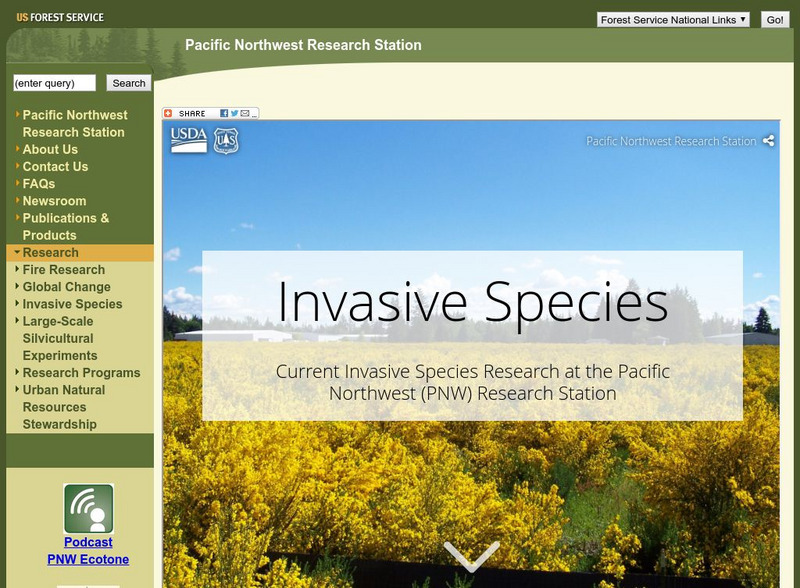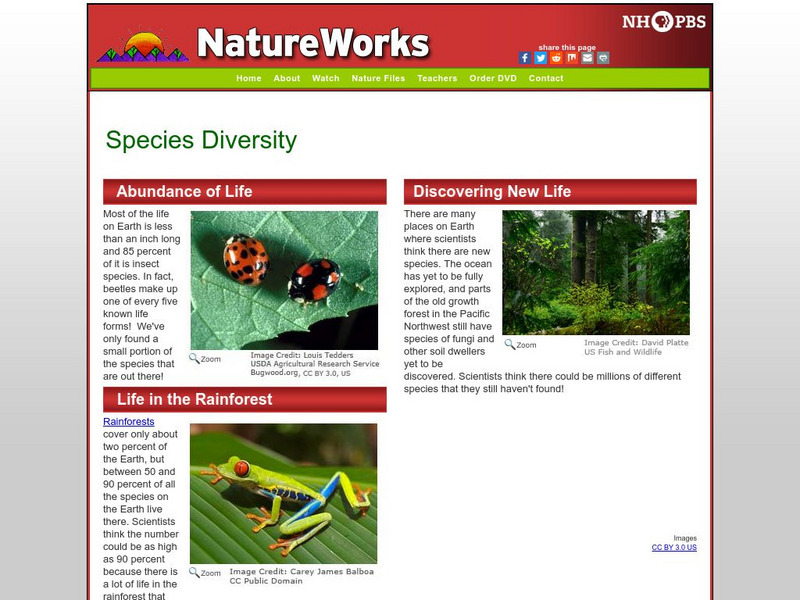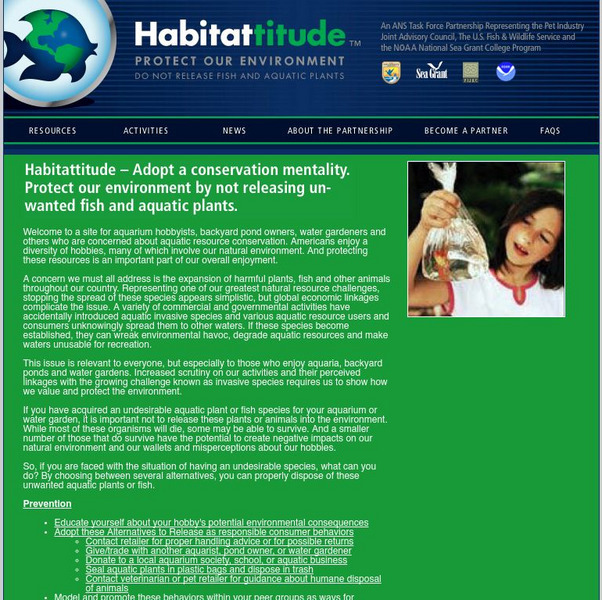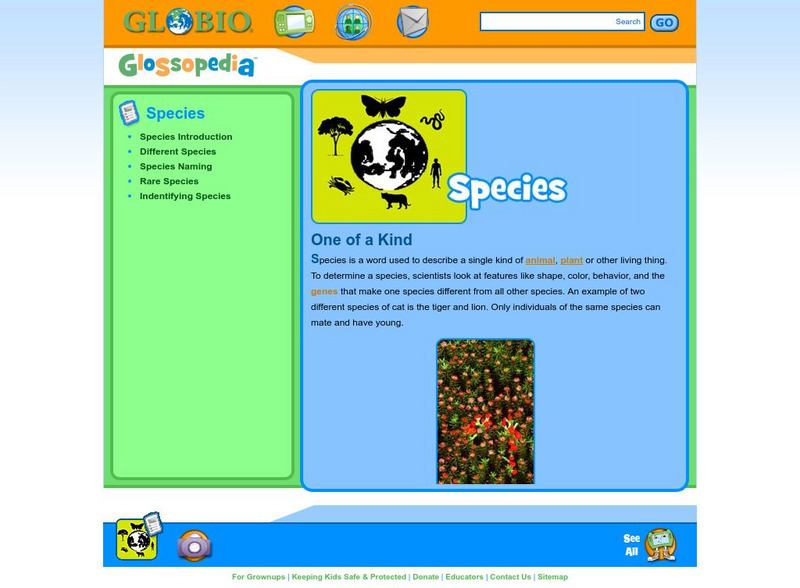Curated OER
Gale's Curriculum
Seventh graders develop an understanding of Southeastern Asian culture. They increase knowledge of world geography in relation to Southeast Asian countries. Students research a variety of Southeast Asian animals and habitats to be used...
Curated OER
An Arctic Expedition
Students become familiar with the Arctic region and the difficulties of scientific research by designing and developing an expedition to an "unknown" place. They use the library and the Internet in order to do their research. They...
Curated OER
Winter
Students examine how animals adapt to the harsh New England winter. They discuss articles they have read on the subject.
Curated OER
Who Am I?
Students classify organisms into one of five categories: producer, consumer, decomposer, predator, or prey. Students play a "Who Am I" game. Signs are hung on the backs of fellow students They must ask questions to determine what...
Curated OER
Understanding Our Planet's Food Web
Sixth graders, in groups, examine how humans have a tenuous position as part of an ecosystem.
Curated OER
Lakes
Students role-play members of an ecosystem. In this lake ecosystems lesson plan, students simulate various organisms within an ecosystem to discover the impact on the environment.
Curated OER
Protecting Our Planet
Students examine the impact of pollution. In this pollution instructional activity, students watch Protecting Our Planet, then participate in a simulation of the effect of pollution on a variety of organisms.
Curated OER
Striking a Balance
Young scholars explore the many different food chains. They participate in a game in which the class is divided into the different parts of the food chain.
Curated OER
Ecosystem Worksheet
For this environment worksheet, students find the words that are related to the ecosystem. The vocabulary is used to help develop environmental awareness.
Curated OER
Immersion Presents Monterey Bay
Students study Monterey Bay. For this Monterey Bay lesson, students create a model of upwelling around Monterey Bay. Students simulate surface water movement relative to prevailing winds.
Curated OER
Exploring Biomes
In this biology worksheet, students watch a movie about various land biomes. Then they use the word list to the right to complete each of the statements. Students also complete the brief quiz about the movie that follows.
Curated OER
How Big is a Dinosaur?
Fourth graders create enlarged replica of a stegosaurus drawing, using a grid to practice coordinates.
Curated OER
Introducing the Use of Dichotomous Keys to Students
Students are introduced to the use of dichotomous keys as a simple means of beginning scientific observations in nature. They comprehend how to use a dichotomous key. Students distinguish characteristics of a group of organisms. They...
Curated OER
Change Happens
Fifth graders engage in a instructional activity to find information about the natural history of Puerto Rico. They practice using a variety of resources for research purposes. The same process of research is used for state of Wisconsin....
Curated OER
Humane Science Projects
In this science learning exercise, students examine the list of possible science projects. They look for the characteristics that set apart these ideas as humane.
Curated OER
Habitat Hopscotch
Students analyze different habitats. In this habitat lesson plan, students evaluate what animals need in their habitats. Students participate in the game Habitat Hopscotch.
Curated OER
Life Science Review for Grade 4
In this life science review for grade 4 worksheet, 4th graders answer 25 multiple choice questions in standardized test format about life science.
Curated OER
The Web of Life
Students participate in a game in which they discover the balance of life in the ocean. They identify different organisms that rely on different types of food. They answer questions to complete the lesson plan.
US Forest Service
United States Forest Services: Pacific Northwest: Invasives
This resource details the non-native plant and animal species that have become invasive to the ecosystem of the Pacific Northwest. Topics include the impact of invasive species and how they become part of a new environment.
Other
Boreal /Fauna and Flora of Boreal Forests
This page offers a detailed collection of photos and info on plant and animal species of the boreal forest. Pictorial glossary.
US Fish and Wildlife Service
U.s. Fish and Wildlife Service: Endangered Species Coloring Book [Pdf]
The U.S Fish and Wildlife Service presents The Endangered Species Coloring Book. A PDF file filled with pictures and descriptions of eight endangered plant and animals.
PBS
Nh Pbs: Nature Works: Species Diversity
If your wondering about the biodiversity of species on Earth, then check out Natureworks from New Hampshire Public Television. A brief definition is included as well as some interesting facts on species diversity.
Other
Aquatic Nuisance Species Task Force: Habitattitude
Dedicated to aquatic resource conservation, this task force addresses the expansion of harmful plants, fish, and other animals and invasive species
Globio
Glossopedia: Species
A species is defined as a single kind of animal, plant or creature. Examples of different species are given and how the many species that exist relate to biodiversity. Scientific naming conventions are introduced.




















![U.s. Fish and Wildlife Service: Endangered Species Coloring Book [Pdf] Handout U.s. Fish and Wildlife Service: Endangered Species Coloring Book [Pdf] Handout](https://static.lp.lexp.cloud/images/attachment_defaults/resource/large/FPO-knovation.png)


